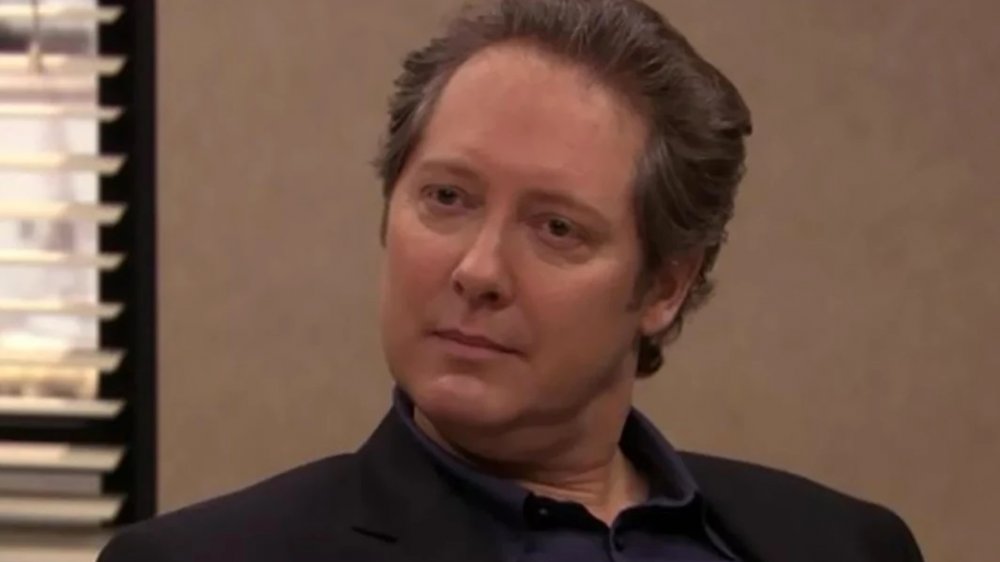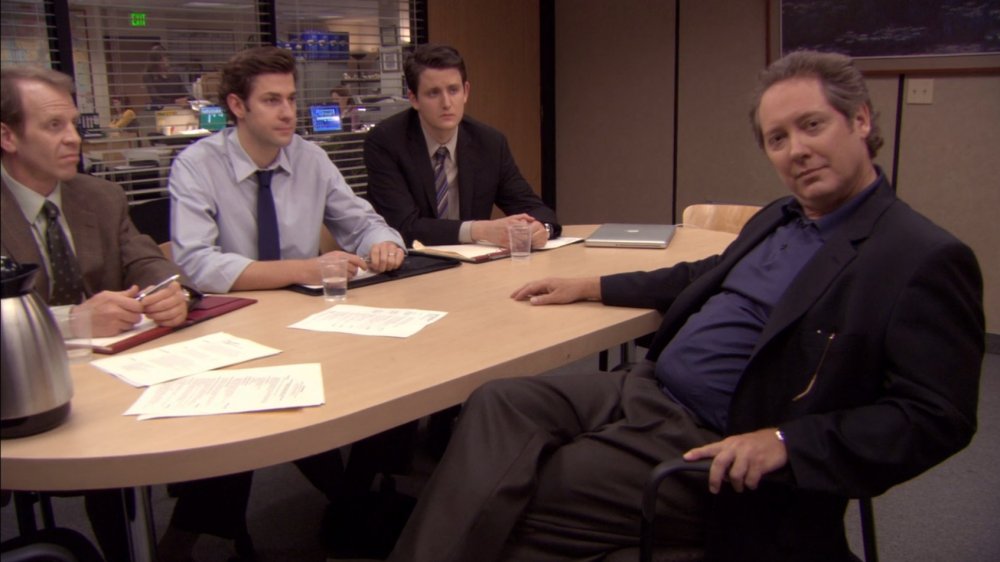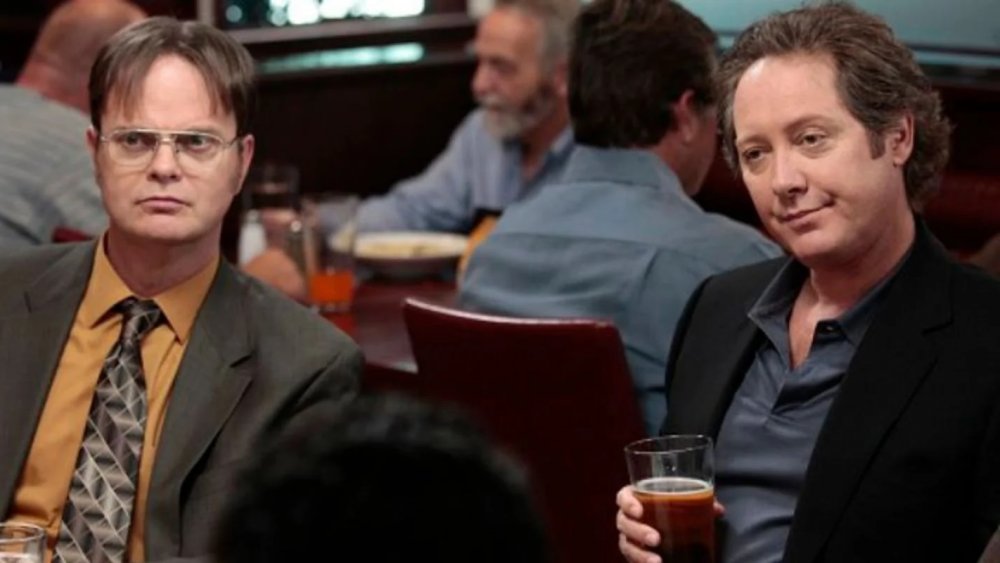The Reason James Spader Didn't Return For The Final Season Of The Office
In a series as crammed with memorable characters and A-list cameos as The Office, James Spader's guest role as Robert California remains one of the most bizarre standouts. Manipulative, intense, and sex-obsessed, California (a.k.a. Bob Kazamakis) first entered the picture at the end of season 7, when he interviewed to replace Steve Carell's Michael Scott as the manager of the Scranton branch of Dunder Mifflin. By the start of season 8, he'd talked his way up to CEO of Dunder Mifflin (which was, at the time, owned by printer company Sabre), a role that mostly involved toying with his staff — that is, until Robert California's abrupt departure on the season finale.
fOn the show, Dunder Mifflin CFO David Wallace (Andy Buckley) replaces California after buying the company and promptly "donating" $1 million to allow California to travel around "educating — mentoring — some African, some Asian, but mainly Eastern European women." To some viewers, it felt like a surprising move — especially after The Office lost Carell just one season prior. Despite the talents of the ensemble cast and the writing team's apparently limitless ability to concoct just-about-believable and hilarious scenarios, Carell's departure left a gap the right size for someone with Spader's comedic instincts and name recognition to fill. So why did Spader bow out of The Office after one season, and why didn't he return for the series' last lap? Here's what we know.
James Spader was only meant to do two scenes
It turns out we were lucky to spend a full season watching Robert California torment the office. In 2012, The Office writer and executive producer Paul Lieberstein — who also played the loathed-by-Michael-Scott human resources representative Toby Flenderson — said that when the producing team first met with James Spader, they were only planning to use him for two scenes, on the episode in which Toby, Jim (John Kransinski), and Gabe (Zach Woods) are interviewing replacements for Michael. However, it was the "life and intrigue" that Spader brought to his short screen time that convinced them to work in a larger story.
For Spader's part, he was happy to join The Office for even one episode. In 2011, he said that he thought Lieberstein and show creator Greg Daniels seemed like fun people to work with, so when they told him that they were having famous names come in for short runs after Carell's departure, he was up for it. And it was a lot of fun, indeed, both on set and on screen — to the point that after Spader's episode aired, the team asked him to come back for a longer arc.
In the end, Spader wound up contributing more to The Office than the show's team ever intended. As Lieberstein told The Hollywood Reporter, "James always wanted this to be a one-year arc, and he now leaves us having created one of the most enigmatic and dynamic characters in television."
His season of The Office was just a 'transition year,' nothing permanent
As with fans and critics alike, the writers of The Office knew that Steve Carell's season 7 departure would shake things up for the show. But rather than pretend that everything could continue as, well, as normal as Dunder Mifflin ever got, they leaned into season 8 as a time for change. In 2012, Lieberstein told Vulture, "We always kind of thought of this as a transition year." That meant building a character arc for California that lasted only one season — something Spader agreed with from the start.
One way in which the season differed from its predecessors was in the shift from focusing on a central character — usually Michael — to moving between focal points every episode or two. Where a character as prominent — and predictably unpredictable — as Michael meant planning ahead for multiple seasons, having someone who was only ever going to be temporary allowed the writers a season to relax and try things on for size.
"It was just kind of fun, living in the moment and just enjoying his presence, and not really planning what it was going to be like in seasons to come," Lieberstein told Vulture.
Robert California's bizarre personality and Spader's committed performance certainly brought fireworks just when fans feared the show's sizzle had fizzled — and left them wanting more, as California would have wanted. Bringing him back for the final season of The Office would have taken away from the intensity of his exit — and, of course, would have ruined his three-year plan to teach "uneducated gymnasts" the ways of the world.


